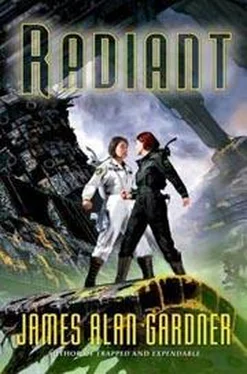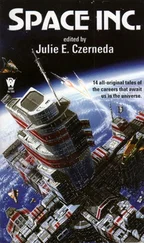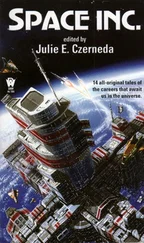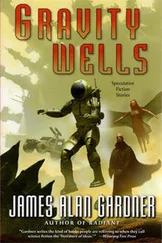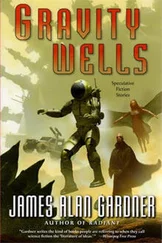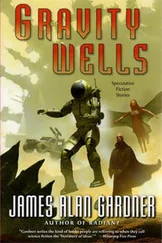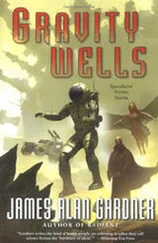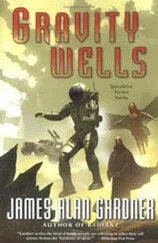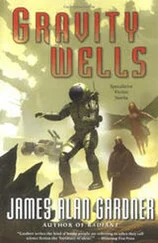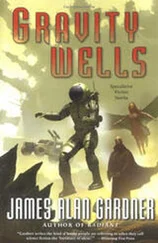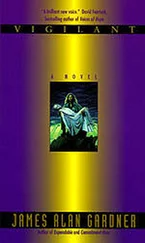I was a wet-behind-the-ears Explorer Third Class. Tut was not only more experienced than I, but he outranked me: as an Explorer Second Class, he was my superior officer. Protocol demanded that the captain address all Explorer matters to Tut, who would then bring me in if he chose. Going over Tut’s head to call me directly meant the captain thought the situation was so serious it couldn’t be left to a madman.
(Cohen knew Tut was crazy. Everybody knew. They just pretended otherwise until their backs were to the wall.)
Pistachio’s bridge was small, made smaller by two diplomats who filled the space with bustling self-importance. One was a woman no older than I. Black skin, no hair, scalp bleached paper white and covered with complex abstract tattoos in royal purple. With flawless skin and bone structure, she was almost certainly a test-tube baby like me… but from the boutique end of the black market. Tall. Strong. Amazonian. Beautifully proportioned, but with muscles like a giant panther. She wore the gold uniform of a commander in the navy’s Diplomatic Corps, plus three nonregulation diamond-stud pierce-bars mounting the bridge of her nose — a perfect example of the privileged thoroughbreds who pranced their way through the Outward Fleet’s DipCor. For centuries, our military diplomats had made themselves rich through bribe-taking, blackmail, and investments based on confidential information. Then they’d established diplomatic dynasties, bringing their offspring into the corps and speedily promoting them to lucrative posts. (Nobody my age could have earned the rank of commander.) Over the years, DipCor had become a family-run business, full of intermarried bluebloods with inflated egos and bank accounts: the last people you’d trust to work out vital treaties. These hereditary princes and princesses didn’t just live in the pleasure palace — they owned it. The woman in front of me turned in my direction, then quickly looked away… unaccustomed to sullying her eyes with beautyless things.
The other diplomat was a fortyish man, a civilian well tailored and well fed. He smelled of alcohol and his eyes were bloodshot. When he opened his mouth to yawn, his tongue was practically white, coated with the telltale signs of hangover. Or perhaps with gold dust from Tut. Unlike the female diplomat, this man didn’t avert his eyes when he saw me. He glared with utter disgust, not only despising my blemished cheek but my face as a whole, the cells in my body, and everything down to the subatomic level. In his mind, I was obviously made from the wrong kind of quarks.
"You took long enough!" he growled. His voice suggested he was the sort of diplomat who eagerly volunteered for missions where he got to make threats.
"Youn Suu took a mere forty-three seconds from the time I first called her to the moment she appeared on the bridge." Those words came from the one person I knew in the room, Captain Abraham Cohen. In a low voice, he added, "Thought I should get the exact time… in case one of these schmuck diplomats decided to kvetch."
Captain Cohen’s eyes twinkled at me. He was a delicate wispy-haired man who loved to play the fond Jewish grandpa. Often he could be charming, but sometimes I wanted to shout in his face, I’ve already got a grandfather! My occasional annoyance at Cohen, however, was nothing compared to Tut’s. Tut was utterly obsessed with our captain — particularly the possibility that Cohen might be a fraud. One night, Tut had walked into my cabin at three in the morning, sat on the edge of my bed, and whispered without preamble, "Nobody’s really called Abraham Cohen. It’s too much, Mom. Abraham Cohen. Abe Cohen. The name has to be fake. I’ll bet he’s never even met a real Jew. He steals all that Yiddish from bad movies. You want to help me pull down his pants and see if he’s circumcised?"
I’d declined. Tut left and disappeared for three days, during which time his only communication was a text message from the brig listing all the cultures besides Judaism that practiced circumcision.
There was more than one reason why Cohen would rather talk to me than to Tut.
"Youn Suu," the captain said, swiveling in his command chair to face the diplomats, "this is Commander Miriam Ubatu and Ambassador Li Chin Ho. Commander, Ambassador, this is Explorer Youn Suu. First in her class at the Academy." (Cohen always introduced me that way. I’d actually been second in my class, but every time I tried to correct the captain’s claim, he chose not to hear.) "Youn Suu will know what’s going on, you watch." He swiveled back to me. "Five minutes ago, we received a distress call from our embassy on Cashleen. There’s been trouble."
"At the embassy?"
"No. In a Cashling city named Zoonau. The embassy sent us footage."
Cohen turned a dial on the arm of his chair. The bridge’s main vidscreen changed from an unremarkable starscape to a picture of what must be Zoonau. It looked like a typical Cashling city — enclosed in a giant glass dome and devoted to one of the five "Worthy Themes" that fascinated the ancient city-builders: water, mirrors, shadow, illusion, and knots.
Zoonau was dedicated to knots. The buildings were made of dull gray concrete, bland and unpainted, which might have produced a drab panorama; but every skyscraper body turned in twists and bends, even full loops and elaborate braids, made possible by carefully placed antigrav fields, which prevented unbalanced weight distributions from causing structural collapse. No street ran straight — they all intertwined, circling, crossing, passing over or under each other. It was a profusely contorted labyrinth: like living in a mandala.
Fortunately, Cashling cities had computerized voice-guides built into every streetlamp, able to direct passersby toward any desired destination. And if you didn’t like the roundabout nature of the streets, you could always get above the problem. Every twenty paces, knotted ropes rose from the ground, strung all the way to the dome. Cross-cords connected from rope to rope, along with the occasional solid rope bridge and macrame walkways that offered far more direct routes than the streets below. At one time, Cashlings must have been as nimble and strong as orangutans if they found such traverses practical.
But no longer. Even if Cashlings were physically able to clamber through rope jungles, they couldn’t be bothered. In the footage of Zoonau displayed on the vidscreen, every single Cashling was down on the ground… and not doing much of anything.
Cashlings were roughly humanoid, with two legs, two arms, and one head; but they had almost no torso, so their gawky legs reached nearly to their armpits. Though none in the vidscreen picture wore clothes, they showed all the colors of the rainbow, plus quite a few shades no self-respecting rainbow would tolerate. Cashling skins were naturally adorned with vivid swirls, stripes, and spottles. Each individual had unique coloration, and most augmented their birth appearance by adding tattoos, slathering themselves with cosmetics, and randomly juggling their pigmentation genes.
But making themselves more eye-catching was the Cashlings’ only field of expertise. Otherwise, they were laughingstocks: a race of lazy fools, practically incapable of taking care of themselves. Their species would have died out from sheer incompetence, except that less decadent ancestors had created cities like Zoonau: fully automated self-repairing havens that satisfied all the residents’ needs. Cashling cities served as nannies to creatures who remained pompously infantile their whole lives.
As I watched, flecks of red began drifting from the top of Zoonau’s dome. The flecks looked like blood-colored snow. Soft. Slightly fuzzy. Floating gently. Not real snow — more like airborne seeds. I’d seen pictures of Earth thistle fields lost in blizzards of their own thistledown… and numerous nonterrestrial plants also emitted clouds of offspring, sometimes so profusely they could smother unwary Explorers. I wasn’t aware of such plants on Cashleen, but I’d never studied Cashling botany. Explorers cared more about the vegetation on uncharted planets than on worlds that were safely developed.
Читать дальше
